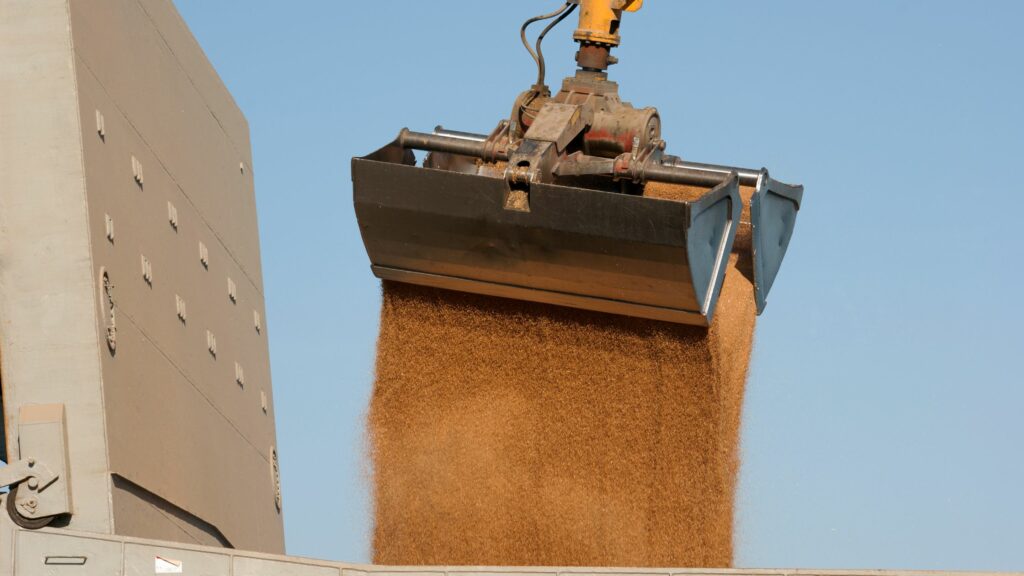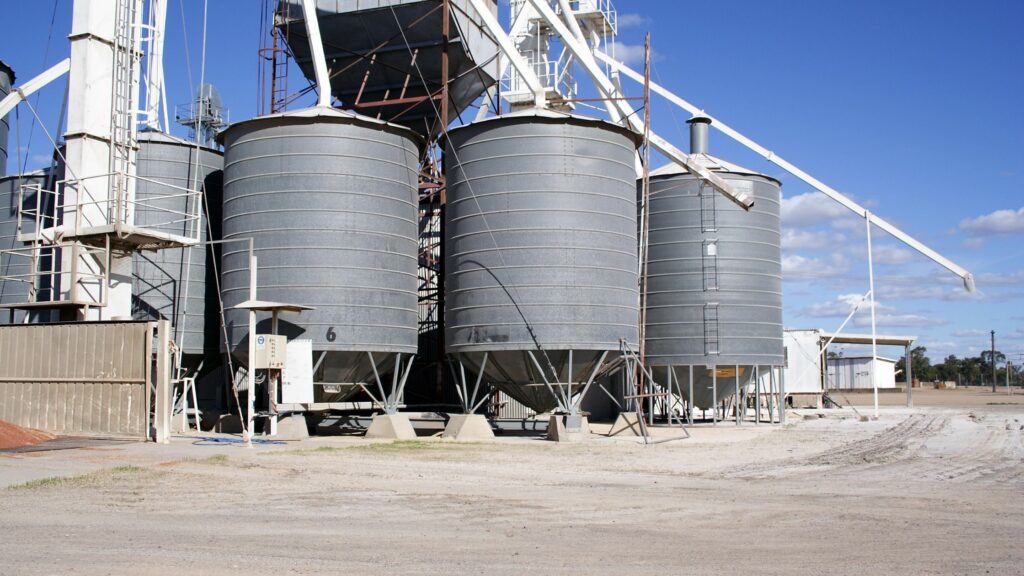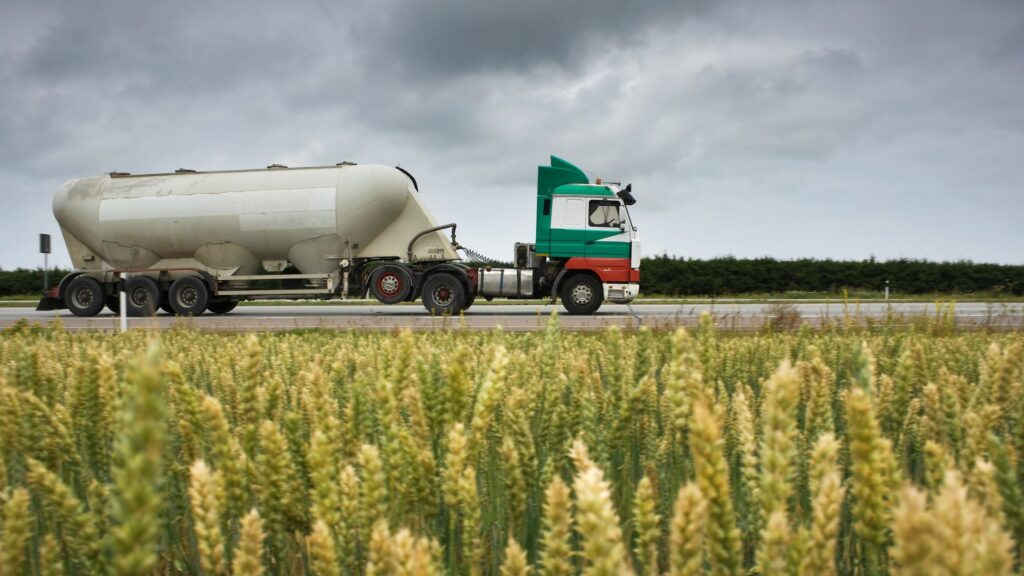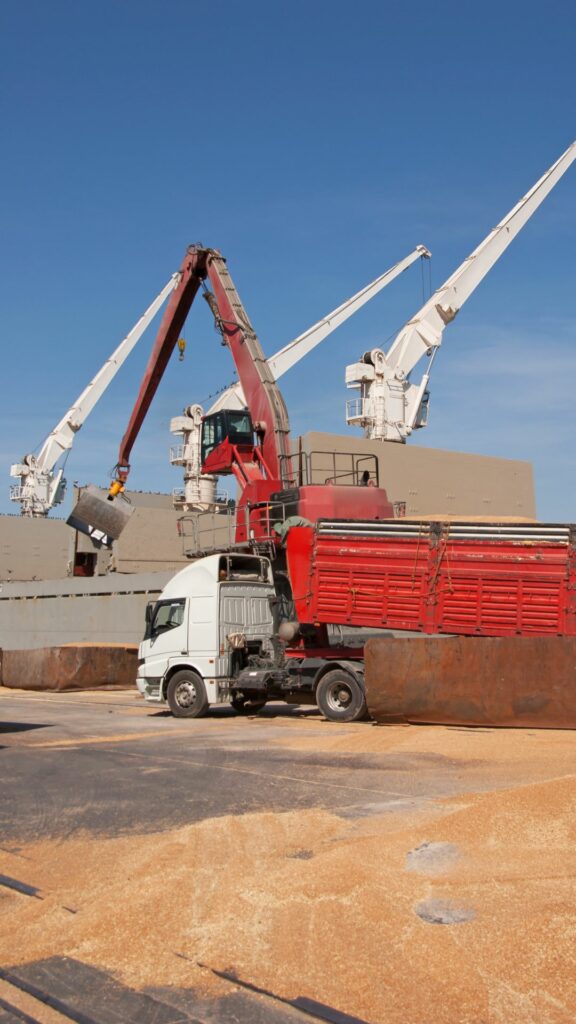Physical Address
304 North Cardinal St.
Dorchester Center, MA 02124
Navigating the vast oceans and sprawling landscapes, the bulk shipping of agricultural products like oilseeds, pulses, and feed ingredients plays a pivotal role in feeding the global population. Imagine massive vessels and trains loaded with grains, seeds, and other essential commodities traveling across continents to bring food to our tables. This process is not just about moving goods; it’s about ensuring food security, stabilizing prices, and connecting farmers to markets worldwide.

In this article, we’ll dive into the world of bulk shipping—exploring why it’s crucial for transporting agricultural products, the challenges faced, and the innovative solutions that keep this global lifeline efficient and reliable. From the importance of economies of scale to the specifics of shipping different commodities and overcoming logistical hurdles, join us on a journey through the arteries of global trade that keep our world fed and our pantries stocked.
Bulk shipping of agricultural products refers to the large-scale transportation of unpackaged agricultural commodities such as grains, oilseeds, and other food or feed products. This mode of transport is crucial for the global supply chain, enabling the efficient and cost-effective movement of essential goods from regions of surplus to areas of demand. The process typically involves the use of specialized vessels, trucks, or trains that can carry large quantities of these commodities over long distances, often across international borders.
Bulk shipping plays a pivotal role in stabilizing food prices and ensuring food security worldwide by facilitating the distribution of agricultural products to where they are needed most. The system’s efficiency and reliability make it an indispensable component of global trade, supporting farmers, markets, and consumers alike.
Bulk shipping is essential for transporting oilseeds, pulses, and feed ingredients due to its economies of scale, which significantly reduce transportation costs. This method is not only cost-effective but also crucial for maintaining the quality of these products during long transits, ensuring they reach their destinations in optimal condition. Furthermore, bulk shipping is key to global supply chain efficiency, enabling the smooth flow of agricultural commodities across the world, thus ensuring that supply meets demand in various markets.
This efficiency helps in stabilizing food prices and securing food availability globally, making bulk shipping an indispensable part of the agricultural trade.
Bulk shipping leverages economies of scale, significantly lowering the cost of transporting large quantities of agricultural products. This cost efficiency is vital for both producers and consumers, making products more affordable.
The bulk shipping process is designed to preserve the quality of oilseeds, pulses, and feed ingredients throughout their journey. Special measures, such as controlled environments, ensure these commodities arrive in optimal condition.
Bulk shipping is a cornerstone of global supply chain efficiency. It ensures a reliable and steady movement of agricultural commodities across continents, meeting the global demand and contributing to food security worldwide.
Effective bulk shipping of agricultural products requires meticulous attention to several critical factors. Packaging and handling are paramount to prevent damage to the commodities during transit. Moisture control is essential to avoid spoilage, especially for products susceptible to deterioration.
Additionally, temperature control plays a crucial role in preserving the quality and freshness of the shipped goods. These considerations ensure the safe and efficient transport of agricultural commodities, maintaining their integrity from origin to destination.
Proper packaging and handling are critical to protect agricultural products from physical damage during transit. This ensures the commodities arrive in pristine condition. For example, the use of reinforced, breathable bags for coffee beans has significantly reduced the incidence of mold and physical damage, maintaining the beans’ premium quality during sea voyages.
Moisture control is vital for preventing spoilage of sensitive commodities. By managing humidity levels, the integrity of the products is preserved, extending their shelf life. Innovative solutions like silica gel packets and moisture barriers in containers have proven effective in protecting shipments of rice and grains from moisture-induced spoilage, especially in humid climates.
Maintaining an appropriate temperature is essential for preserving the quality of agricultural commodities. Temperature control safeguards against degradation, ensuring products remain fresh upon arrival. The introduction of refrigerated (reefer) containers has revolutionized the shipping of temperature-sensitive products like fruits and vegetables, allowing them to be transported over long distances without losing freshness.
Shipping oilseeds, such as soybeans and sunflower seeds, requires attention to specific needs to maintain their quality. These commodities demand ventilation to prevent overheating and moisture control to avoid spoilage during transit. The unique characteristics of oilseeds necessitate tailored shipping practices to ensure they reach their destination in optimal condition, highlighting the importance of specialized knowledge and equipment in the bulk shipping industry.

Soybeans and sunflower seeds stand out as the most commonly transported oilseeds. Their high oil content necessitates careful handling during bulk shipping to maintain their quality and freshness.
To safeguard the integrity of these oilseids, specific measures are implemented:
| Requirement | Method/Technology | Purpose |
|---|---|---|
| Ventilation | Advanced ventilation systems (passive/active) | Prevent overheating and ensure air circulation |
| Moisture Control | Hermetic bags, silica gel packets, moisture sensors | Control humidity levels and prevent spoilage |
Adhering to these specific requirements is vital for preserving the quality of the shipped commodities, ensuring they arrive at their destination in optimal condition.
Shipping pulses, including lentils and chickpeas, requires specialized handling to maintain their quality during transit. These commodities are particularly sensitive to moisture, necessitating dry conditions to prevent spoilage. Additionally, gentle handling is crucial to avoid physical damage that can compromise the integrity of the pulses.
Implementing solutions such as airtight containers for moisture control and soft handling equipment to minimize physical stress during loading and unloading ensures that pulses reach their destinations in excellent condition, ready for consumption or further processing.
Lentils and chickpeas stand out as key pulses transported in bulk. Their high nutritional value and culinary versatility make them vital for global food markets.
| Pulse Type | Handling Requirement | Storage Solution |
|---|---|---|
| Lentils | Gentle handling to prevent splitting | Airtight containers for dry conditions |
| Chickpeas | Soft handling to maintain integrity | Climate-controlled storage to prevent spoilage |
Ensuring dry conditions is critical to prevent moisture-related spoilage. Technologies such as silica gel packets and desiccant systems in containers help maintain an optimal humidity level. Similarly, gentle handling is imperative to protect these pulses from physical damage, preserving their quality during transit.
Equipment like pneumatic conveyors and vibratory feeders are used to ensure minimal impact handling, reducing the risk of damage to the pulses.
| Requirement | Technology/Method | Benefit |
|---|---|---|
| Dry Conditions | Silica gel packets/Desiccant systems | Maintains optimal humidity, preventing spoilage |
| Gentle Handling | Pneumatic conveyors/Vibratory feeders | Minimizes physical stress, preserving pulse integrity |
The bulk shipping of feed ingredients, such as corn and soybean meal, demands particular attention to ensure their nutritional value and quality are preserved. These commodities require contamination prevention measures to safeguard against exposure to harmful substances and freshness maintenance to retain their nutritional integrity. The handling and transportation of feed ingredients are critical, with specific protocols in place to prevent spoilage and ensure that these essential components for animal feed arrive in optimal condition for use in the agriculture and livestock industries.
Corn and soybean meal stand out as fundamental feed ingredients that are extensively shipped in bulk. Their critical role in sustaining animal nutrition highlights the necessity of preserving their quality during transit.
Implementing stringent contamination prevention measures is paramount, along with maintaining freshness. These efforts are essential to safeguard the nutritional value and safety of feed ingredients, ensuring they fulfill their purpose in the agriculture and livestock sectors effectively. Specific measures include:
By focusing on these specific measures and technologies, the bulk shipping industry can significantly enhance the safety, quality, and nutritional value of feed ingredients during transit, ensuring they arrive ready for use in the agriculture and livestock industries.
Bulk shipping faces several challenges that can impact the efficiency and reliability of transporting agricultural commodities. Contamination risks from pests or moisture can compromise the quality of shipped goods, necessitating rigorous management practices. Regulatory compliance is another significant hurdle, as shipping companies must navigate a complex web of international and local laws to ensure legal passage.

Additionally, logistics issues, such as port delays and the selection of transportation modes, can introduce unpredictability, affecting delivery times and costs. Addressing these challenges is crucial for maintaining the integrity of the global supply chain and ensuring the timely, safe delivery of agricultural products.
Contamination risks pose a significant challenge in bulk shipping, with pests and moisture threatening the quality and safety of agricultural products. Effective management strategies are essential to mitigate these risks and protect the commodities. For example, in 2018, a shipment of wheat from France to Algeria was rejected due to the presence of a harmful pest, leading to significant financial losses and a temporary disruption in the supply chain.
This incident underscores the importance of rigorous pest control measures and pre-shipment inspections to ensure compliance with the importing country’s standards.
Navigating regulatory compliance is a complex task for bulk shipping operators, as they must adhere to a diverse range of laws and regulations across different jurisdictions. Ensuring compliance is crucial for smooth operations and avoiding legal issues. A notable case involved a shipping company fined heavily for bypassing environmental regulations, highlighting the critical need for adherence to international maritime pollution standards.
Such incidents demonstrate the importance of comprehensive compliance programs that include regular training for crew members and strict adherence to environmental protection laws.
Logistics challenges, including port delays and the selection of appropriate transportation modes, can significantly impact the efficiency of bulk shipping. For instance, in 2019, unexpected port strikes in Chile led to extended delays for ships carrying agricultural products, resulting in spoilage and contractual penalties. This situation illustrates the need for flexible logistics planning and the establishment of contingency measures to mitigate the effects of unforeseen events on the shipping schedule and overall supply chain.
To address the myriad challenges in bulk shipping, adopting advanced solutions and strategic planning is essential. Advanced packaging technologies, such as hermetic bags and quality containers, play a crucial role in preventing contamination and damage. Real-time tracking systems, including GPS and moisture sensors, enhance visibility and control, allowing for prompt action to protect the cargo.
Furthermore, strategic logistics planning, involving route optimization and the selection of reliable partners, mitigates risks associated with port delays and transportation modes. Together, these measures significantly enhance the resilience and efficiency of the bulk shipping process, ensuring the safe and timely delivery of agricultural commodities.
Advanced packaging solutions, such as hermetic bags and quality containers, are indispensable in protecting bulk shipments from contamination and physical damage. Innovations in packaging technology have led to the development of materials that are not only stronger and more durable but also capable of maintaining the optimal internal environment for the commodities they enclose. For example, hermetic bags designed for grain storage can significantly reduce losses from pests and moisture, as demonstrated in a case study where grain stored in hermetic bags retained its quality over six months without the need for chemical preservatives.
This ensures that commodities maintain their integrity from origin to destination. Similar packaging specifications are required for other products such as sugar or some grains even, so it is wise to benchmark one’s logistics with other supply chain infrastructure that share the same needs.

Utilizing real-time tracking technologies, including GPS and moisture sensors, provides enhanced oversight of shipments. The adoption of IoT (Internet of Things) devices in the logistics industry has transformed the way shipments are monitored. A notable example involves the use of GPS trackers and moisture sensors in the transportation of sensitive commodities like coffee beans, where real-time data on location, humidity, and temperature are crucial for maintaining quality.
This capability allows for immediate responses to any issues that may arise during transit, safeguarding the cargo’s quality and security.
Strategic logistics planning, with a focus on route optimization and the selection of reliable partners, is crucial for navigating the complexities of global shipping. Advanced software solutions now enable companies to analyze vast amounts of data to determine the most efficient shipping routes and modes of transport. Additionally, building strong relationships with trusted logistics partners can alleviate common challenges such as port delays.
An example of strategic logistics in action is the coordination between shipping companies and port authorities to prioritize the unloading of perishable goods, thereby reducing the risk of spoilage. It ensures timely deliveries and minimizes risks associated with port delays and transportation choices, thereby enhancing the overall efficiency of the shipping process.